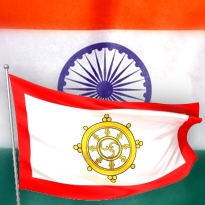 In gambling terms, America just witnessed a seismic power shift from the federal government to state governments. Online gambling fans in India are no doubt hoping something similar happens in their country soon. Gambling is only permitted in two Indian states: Goa and Sikkim. Sikkim has always played second fiddle to Goa’s popular operations, but it was Sikkim that passed India’s first online gaming legislation in 2008.
In gambling terms, America just witnessed a seismic power shift from the federal government to state governments. Online gambling fans in India are no doubt hoping something similar happens in their country soon. Gambling is only permitted in two Indian states: Goa and Sikkim. Sikkim has always played second fiddle to Goa’s popular operations, but it was Sikkim that passed India’s first online gaming legislation in 2008.
Sikkim’s state government subsequently received nine Letters of Intent (LOI) from operators and issued provisional licenses to three of those applicants (all lottery operators). Despite this, no state-sanctioned online gaming is actually taking place in Sikkim, in part because in April the Central government introduced the Information Technology (Due diligence observed by Intermediaries Guidelines) Rules 2011, which charged internet companies with preventing the spread of various socially undesirable material, including such no-no’s as racism, kiddie porn and anything “relating or encouraging money laundering or gambling.”
A recent test of these guidelines (similar to the controversial SOPA legislation pending in the US) was conducted by the Center for Internet and Society in Bangalore. Posing as a concerned citizen, a researcher contacted an unidentified “host and information location tool,” claiming to be annoyed by links on its search engine generated by the phrase “online gambling.” The company initially replied that its search engine had no control over the info passing through it, but within a week, all links to the gambling sites in question (including their subdomains) were taken down.
Seen in this light, it doesn’t matter what legislation the Sikkim government might pass, nor that gambling (as in America) is supposed to be a matter for the states to decide. As noted by glaws.in reporter Jay Sayta, Sikkim acknowledged the legal ambiguity of online gambling in India by inserting clauses into their LOI that absolved them of all legal liability should the Central government decide to flex its muscles.
DAMN THE BANGALORE TORPEDOES, FULL SPEED AHEAD
Despite this, Sikkim appears to be proceeding as if the barriers to issuing full licenses are within their ability to overcome. The Sikkim Legislative Assembly had its one-day winter session 2011 on Dec. 21, during which the House unanimously passed the Sikkim Online Gaming (Regulation) Amendment Bill. Sikkim Now described the Amendment’s purpose as “inserting provisions relating to Authority for overseeing and regulating the functions of online gaming and sports gaming, and provisions relating to the Appellate Authority for making appeal against the orders of the Authorized Officer under the said Act and rules.”
So what’s spurred Sikkim to keep pushing the envelope? As recently demonstrated in Japan, natural disasters and the subsequent drain that relief efforts place on state coffers can help tip the balance in favor of tax-generating gambling programs. An earthquake struck the state of Sikkim on Sept 18, killing over 100 people and causing extensive damage. Sikkim subsequently asked the national government for Rs 68.9b (US $1.3b) in aid. Might the Central government prefer to save some rupees by allowing Sikkim to raise the money themselves via online gaming?
Finally, while US states may be (temporarily) ahead of their Indian counterparts in asserting their authority over gambling matters, India’s judges are ahead of Americans in terms of weighing the skill v. luck debate. In November, the Madras High Court issued a ruling that prohibited police from “interfering in any manner” with the Mahalakshmi Cultural Association’s games of rummy, regardless of whether the games were played for money or for fun. Justice S. Rajeswaran said the 13-card game was “mainly and predominantly a game of skill,” therefore it couldn’t be considered gambling. Given that ‘poker is a game of skill’ is one of the planks on which Black Friday defendants Chad Elie and John Campos are basing their defense, any chance of getting Justice Rajeswaran a green card before their trial?